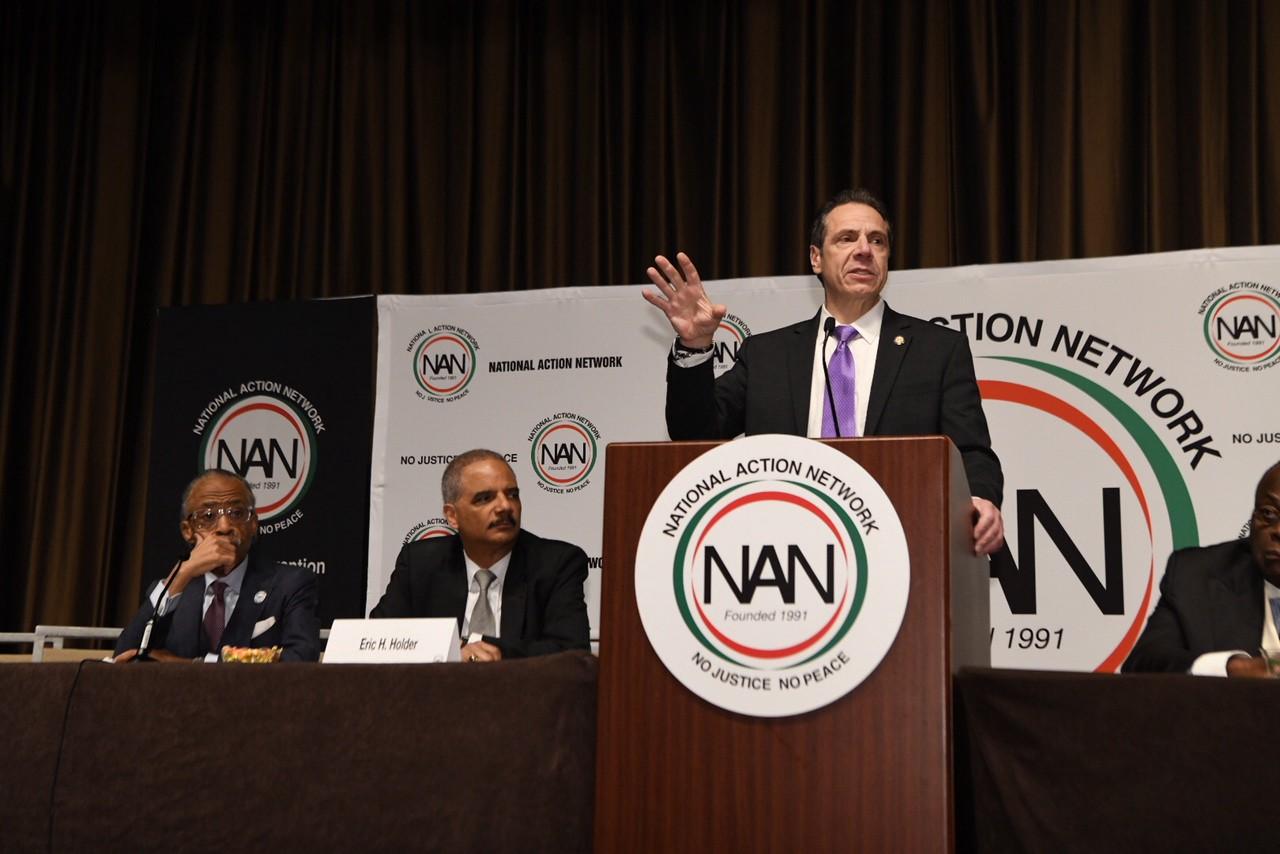Did Gov. Cuomo Grant New York Parolees the Right to Vote? Not Exactly.
When Governor Andrew Cuomo announced Wednesday that he would restore voting rights to New Yorkers on parole, he won instant praise from organizers who had long pushed for criminal justice reform. “This executive order will mean thousands more will be welcomed back into our democracy and assured that in 21st century America, the right to vote is […]

When Governor Andrew Cuomo announced Wednesday that he would restore voting rights to New Yorkers on parole, he won instant praise from organizers who had long pushed for criminal justice reform.
“This executive order will mean thousands more will be welcomed back into our democracy and assured that in 21st century America, the right to vote is inviolable,” said Myrna Pérez, deputy director of the Brennan Center for Justice’s democracy program, in a press statement.
People on parole, including those who have long pressed for reform, also lauded the announcement. “It’s about time,” said David Schermerhorn, a community leader with VOCAL-NY (Voices of Community Activists and Leaders-New York), a grassroots organization of low-income people affected by HIV/AIDS and mass incarceration. “Politicians have always ignored people like me on parole because we couldn’t do anything for them. Now we have a voice.”
Cuomo himself used the announcement at the National Action Network conference to bolster his reputation as a criminal justice reformer, which is particularly significant now that Cynthia Nixon is posing a challenge from the left in the Democratic primary. “It is unconscionable to deny voting rights to New Yorkers who have paid their debt and have re-entered society,” Cuomo stated at the conference, noting that 71 percent of the approximately 35,000 people on parole are Black or Latinx. “This reform will reduce disenfranchisement and will help restore justice and fairness to our democratic process.”
His announcement garnered headlines like “Cuomo restores voting rights to all 35,000 parolees in New York” and “New York Gov. Andrew Cuomo signs executive order giving parolees in his state the right to vote.”
But did Cuomo deserve them? A closer read of the executive order shows that it doesn’t actually guarantee people on parole the right to vote. Instead, it requires the commissioner of the Department of Corrections and Community Supervision (DOCCS), the state agency responsible for prisons and parole, to send his office a monthly list of everyone currently under parole supervision for consideration. “Each individual on the eligible list will be reviewed to determine whether he or she will be granted a pardon that will restore voting rights,” states the order. In other words, what looked like a sweeping restoration appears to be more of a case-by-case decision.
The governor’s office did not respond to The Appeal’s query regarding how the executive order was worded and whether Cuomo plans to individually evaluate parolees. The wording could be an attempt to avoid the fate of Governor Terry McAuliffe of Virginia, where state law disenfranchises people with felony convictions. McAuliffe’s executive order restoring their voting rights was overturned by the state Supreme Court, which ruled that he could only restore rights on a case-by-case basis. He did, restoring voting rights to approximately 168,000 people with felonies.
The pardon Cuomo would use is different from the power of the pardon that the governor already has — to set aside a person’s conviction so that it no longer shows up on a background check or subjects them to deportation. (Since 2011, Cuomo has granted over 100 of these pardons to people convicted of misdemeanors or nonviolent felonies when they were 16 or 17 years old and 18 to immigrants whose convictions made them at risk for deportation.)
In New York, people on parole already have a pathway to the ballot box, but it’s cumbersome. Those who have been convicted of misdemeanors, violations, or no more than one felony can apply for a Certificate of Relief from Disabilities. Those with two or more felony convictions can apply for a Certificate of Good Conduct. Both allow a person on parole to vote. If the person successfully completes parole, their ability to vote is permanently restored. People on probation are eligible to vote at any time.
While the media and many advocates, including formerly incarcerated people and people on parole, praised Cuomo’s action, others were skeptical. Some pointed out that similar promises from New York officials — not to prosecute low-level marijuana possession, for instance — haven’t always panned out. And Cuomo’s own bail reform plan was shelved during budget negotiations in Albany last month.
“We need to be clear that no one’s right to vote was restored this week,” pointed out Nick Encalada-Malinowski, VOCAL-NY’s civil rights campaign director. “We still need to see how Cuomo will actually operationalize this executive order … In all likelihood we will still need to pass legislation to secure a clear and permanent right to vote for people on parole.”
